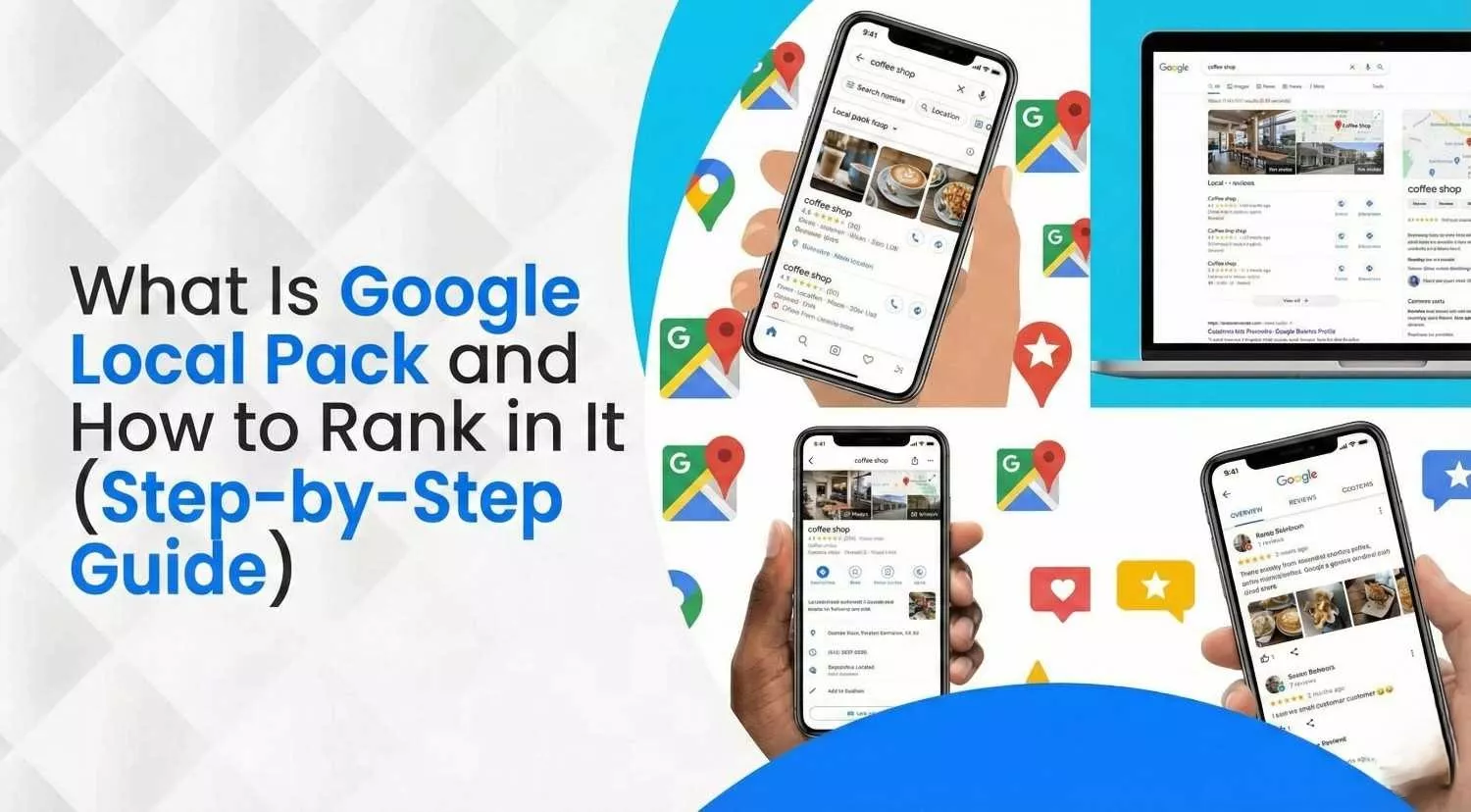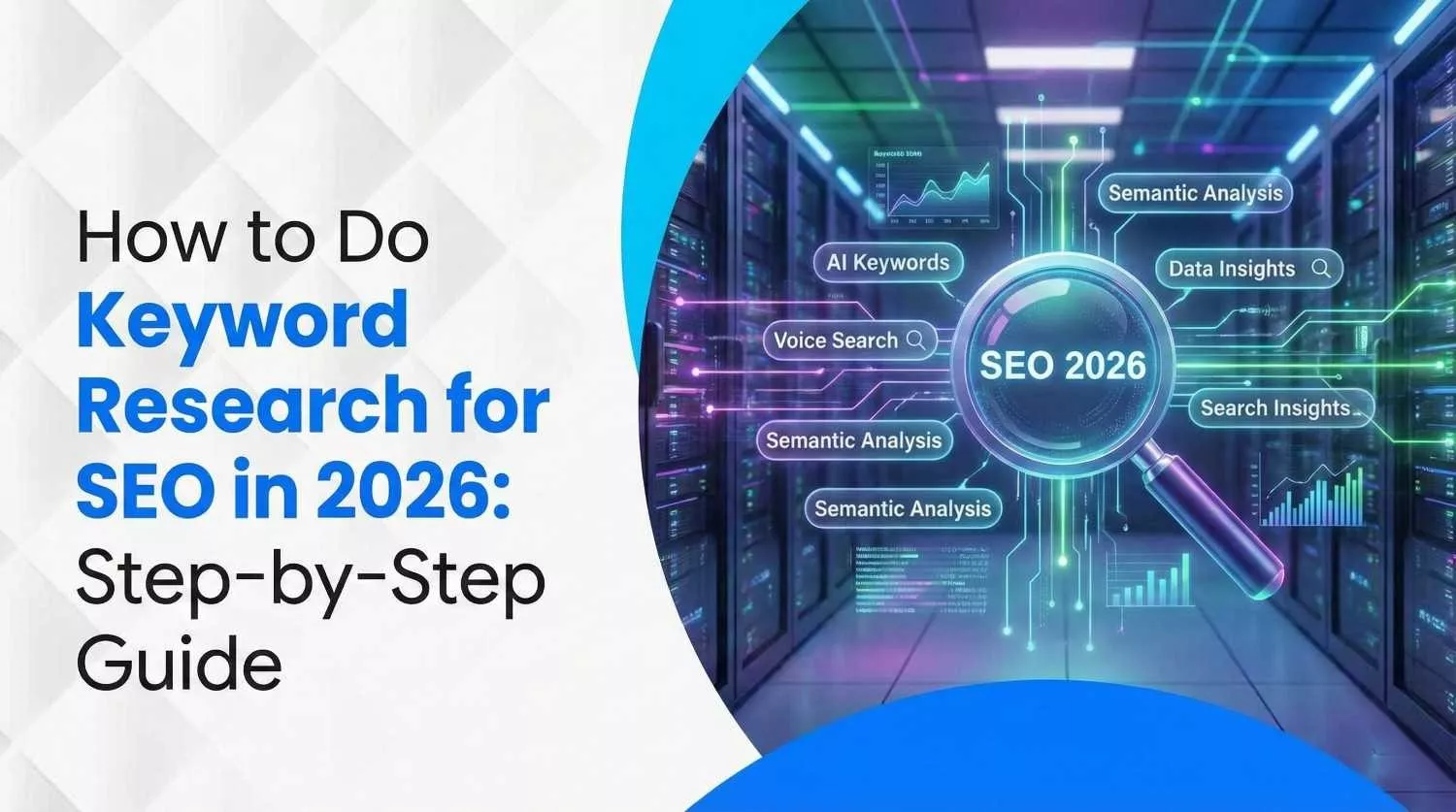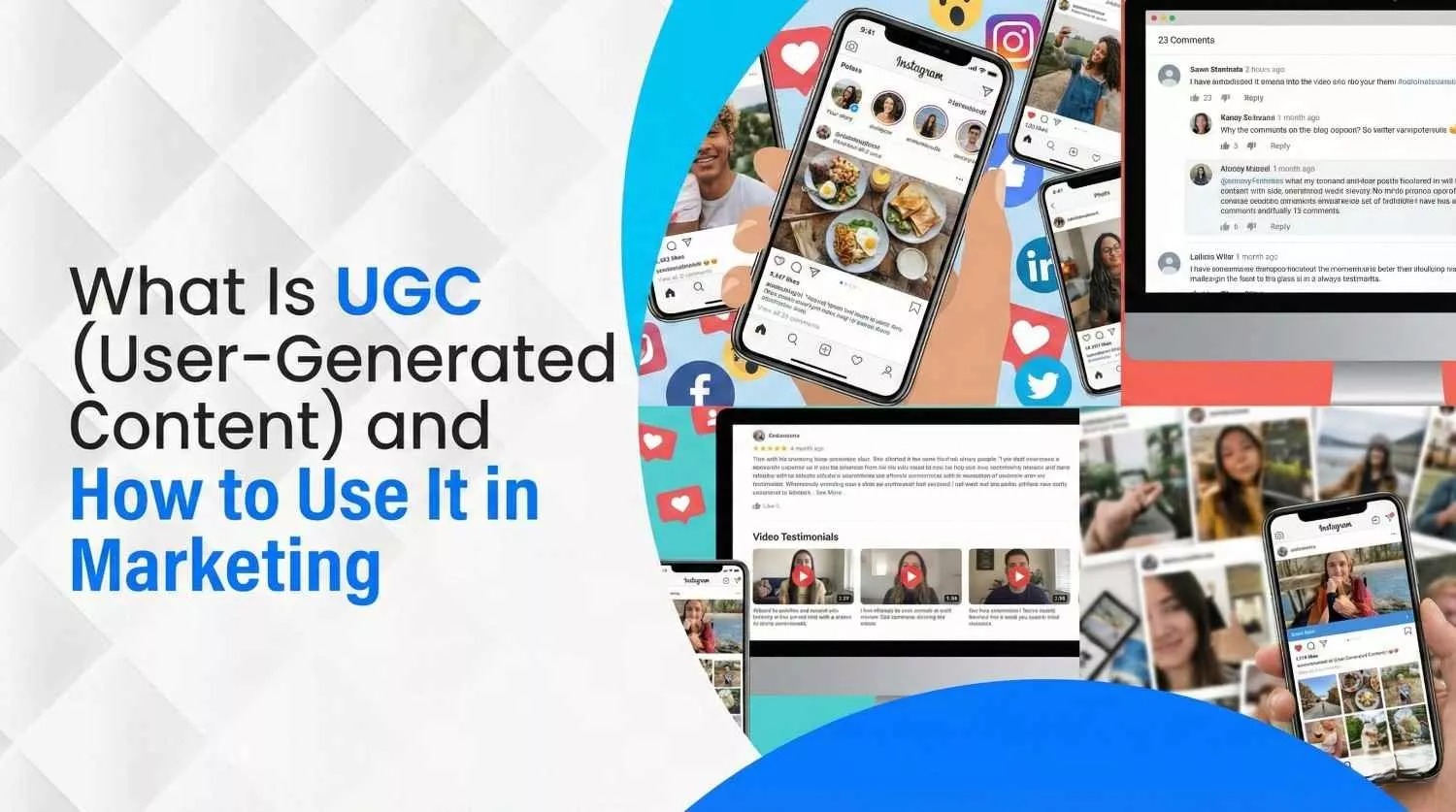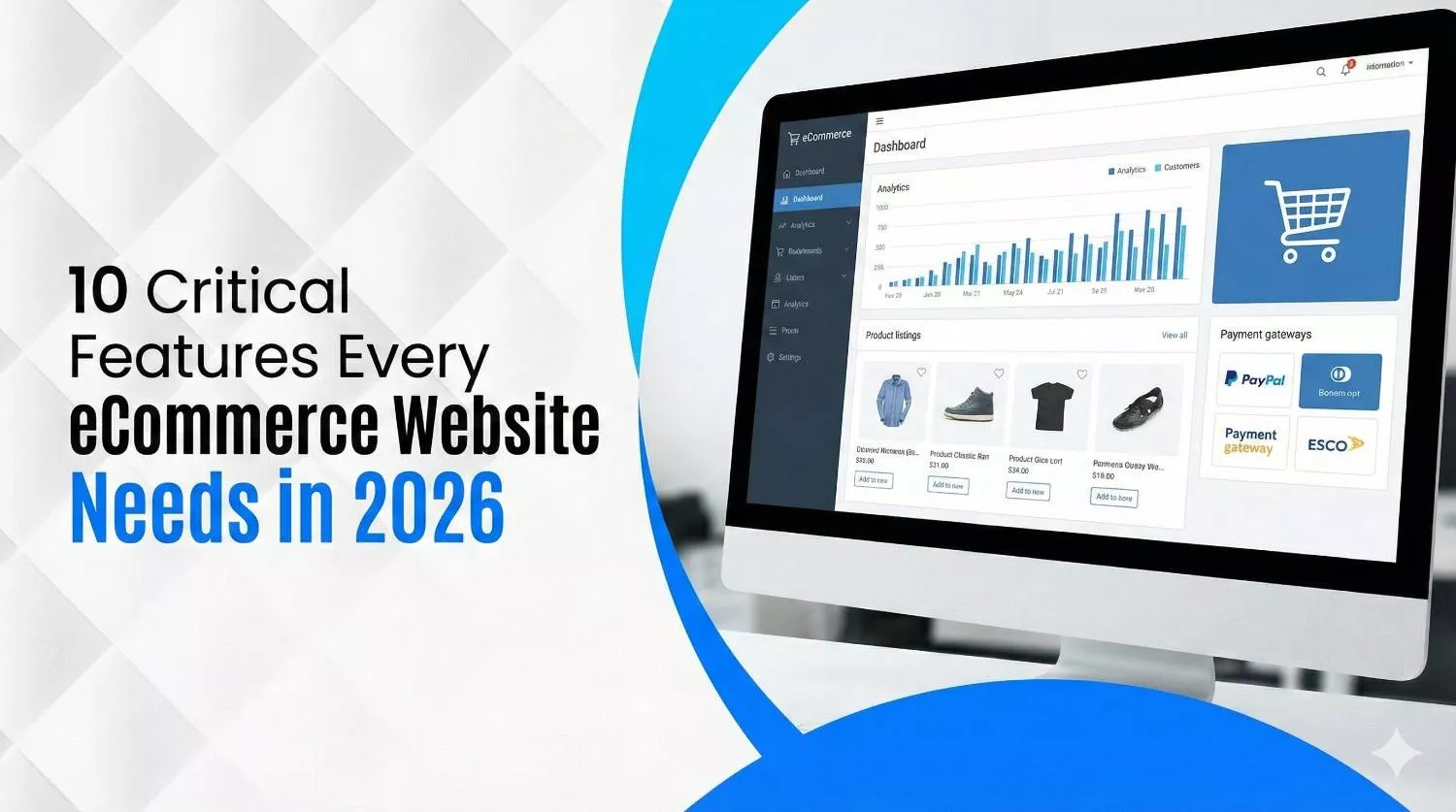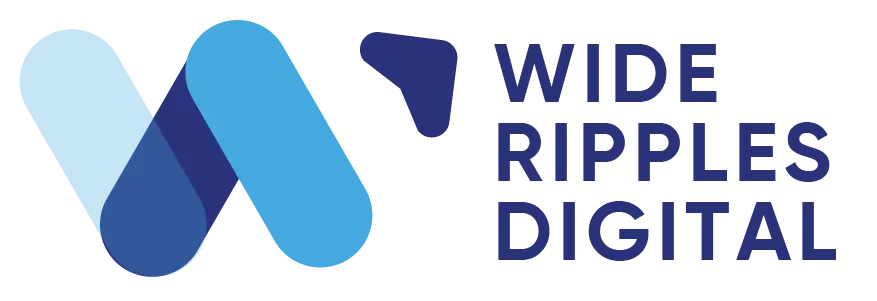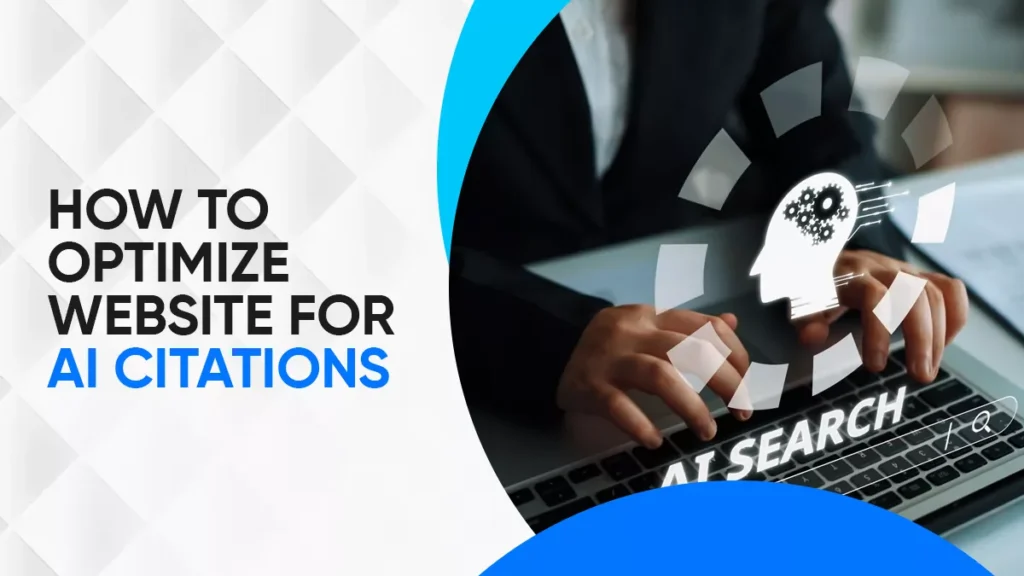
How to Optimise a Website for AI Citations
November 21, 2025
| Neha Ghauri | Reviewed by Haseeb Hamdani
- Why AI Citations Matter for SEO & Brand Visibility
- AI Citations vs Backlinks: What’s the Difference?
- How to Optimise Your Website for AI Citations (Step-by-Step)
- SEO vs AI Citation Optimization: What’s the Real Difference?
- Common AI Citation Optimization Mistakes to Avoid
- How Wide Ripples Helps You Optimise for AI Citations
- Quick FAQs
AI tools like ChatGPT, Gemini, Perplexity, and Claude. These tools are changing how people search online. Instead of just showing a list of websites, these tools give direct answers. But they don’t create knowledge on their own. However, they pull from different sources across the internet.
If your website becomes one of the cited sources. It means you gain visibility, trust, and traffic. This process is called AI citation optimization. Moreover, it’s quickly becoming as important as SEO itself.
In this guide, you will learn why AI citations matter. How to optimise your website for them and common mistakes to avoid. Especially how Wide Ripples Digital Inc. can help you stay ahead.
Why AI Citations Matter for SEO & Brand Visibility
A few years back, the main goal of SEO was ranking on Google’s first page. But now, with AI-driven search engines, the way people discover information is changing. It is helpful for your website in many ways.
- AI replaces traditional search steps. Like, instead of clicking through links, now users get summarised answers directly.
- Citations also help to build trust. When AI tools cite your brand, it signals reliability to users.
- You also get traffic from AI referrals. Tools like Perplexity often link directly to their sources, sending new traffic.
- It is helpful in future-proofing your SEO. As AI search grows, being “AI-visible” ensures your business won’t get left behind.
AI Citations vs Backlinks: What’s the Difference?
Traditional SEO is built on backlinks. But AI citations are different:
| Factor | Backlinks | AI Citations |
|---|---|---|
| Purpose | Improve Google rankings | Establish authority in AI answers |
| Format | Hyperlinked text from another site | Mention or reference by AI tools |
| User Impact | Increases visibility in SERPs | Builds trust in AI-generated answers |
| Tracking | Measured via SEO tools | Harder to track, requires monitoring AI tools |
In simple words, backlinks boost rankings, while AI citations boost visibility in AI-generated answers.
How to Optimise Your Website for AI Citations (Step-by-Step)
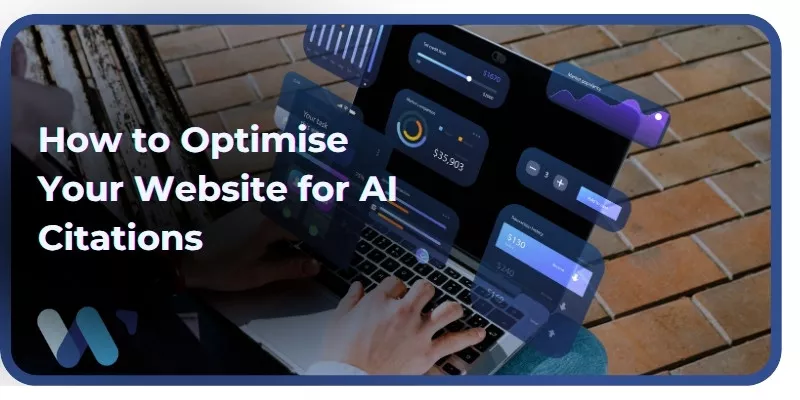
1. Build Content That’s “Citable”
AI models look for content that is clear, trustworthy, and authoritative. Also,
- Answer questions directly according to your content.
- Provide well-structured definitions, guides, and explanations.
- Use simple language (grade 5–8 readability) so AI can parse content easily.
- Add supporting data, stats, and sources.
The citable content means your website should look like the best resource on the topic.
2. Use Structured Data and Schema
Schema markup helps AI tools read and categorize your content.
- Add an FAQ schema if you answer common questions.
- Use the HowTo schema for tutorials.
- Add Article and Organisation schema to show author credibility.
- Mark up product info, price, and availability if you run an e-commerce.
This is crucial because AI models scrape structured data first when generating answers.
3. Strengthen E-E-A-T
Experience, Expertise, Authority, Trust. Google uses E-E-A-T for rankings. Whereas AI tools borrow this framework, too.
- Add author bios with credentials.
- Show real-world experience, like case studies and client stories.
- Highlight certifications, awards, or professional memberships.
- Build trust with HTTPS, privacy policies, and clear contact details.
4. Create Answer-First Content Structure
AI bots pull content in snippets, so format matters.
- Use H2 and H3 headers with question-based phrasing.
- Put the short answer first, then expand with details.
- Break long text into short paragraphs (2–4 sentences).
- Use bullet points and numbered lists.
- This style makes it easy for AI to lift and cite your content.
5. Cover Topics in Depth with Interlinking
AI citations rely on topical depth. If your site covers a subject thoroughly, that means it’s more likely to be chosen as a reference.
- Build topic clusters, main pages with related subpages.
- Add internal links between pages.
- Use contextual links within articles.
6. Add FAQs to Your Pages
FAQs are one of the easiest ways to boost AI citations.
- Write short Q&A sections.
- Mark them up with the FAQ schema.
- Cover both basic and advanced questions.
7. Optimize for Entities and Brand Mentions
AI models understand entities like brands, people, places, and products as more than just keywords.
- Consistently use your brand name in content.
- Associate your brand with related keywords
- Get unlinked brand mentions across blogs and directories.
Looking for more ways to strengthen your brand mentions? Explore innovative marketing solutions trusted by top brands across Canada.
8. Keep Content Fresh & Updated
AI tools check for recent and updated data. Stale pages may be ignored.
- You should update your top articles every 6–12 months.
- Also, add new stats, case studies, and insights.
- Refresh your structured data.
SEO vs AI Citation Optimization: What’s the Real Difference?
1. The Goal is Different
- SEO (Google Search): The main goal is to rank your website on the first page of Google, so users click through and visit your site.
- AI Citation Optimization (AI tools like ChatGPT, Gemini, and Perplexity): The goal is not just ranking. It’s to have your content cited inside AI-generated answers. So users trust your brand when AI gives them information.
2. Main Signals AI and Google Look For
- SEO: Relies on keywords, backlinks, and technical SEO signals like speed and Core Web Vitals.
- AI Citation: Focuses on E-E-A-T (Experience, Expertise, Authoritativeness, Trustworthiness), structured content, and clear citations that AI can easily pick up.
3. Content Style Matters
- SEO: Loves long-form, keyword-rich articles that answer queries in-depth.
- AI Citation: Prefers short, clear, answer-first formats like FAQs, definitions, and quick summaries that AI can quote.
4. Authority Signals
- SEO: Authority comes from backlinks, domain authority, and social shares.
- AI Citation: Authority comes from brand mentions, structured schema, and entity recognition. AI tools recognize your brand as a trusted source, even if you don’t always get backlinks.
5. Content Structure
- SEO: Optimized with H1, H2, meta titles, keyword placement, and internal links.
- AI Citation: Needs schema markup, FAQ sections, Q&A formats, and snippet-friendly content. AI pulls from structured answers more often than plain text.
6. User Experience
- SEO: Measured by click-through rates, bounce rates, and user time on page.
- AI Citation: AI may summarise your content directly, so users may not always visit your site. But they see your brand as the source.
7. Freshness and Updates
- SEO: Evergreen content can rank for years if well-optimised.
- AI Citation: AI models favour the most up-to-date content. Updated blogs and news-style pieces are more likely to get cited.
8. Traffic Source
- SEO: Brings organic clicks from search results.
- AI Citation: Brings brand visibility inside AI answers, with possible clicks depending on the tool.
9. Tracking Performance
- SEO: Easy to measure with tools like Ahrefs, SEMrush, and Google Search Console.
- AI Citation: Harder to track. You need manual checks, AI monitoring tools, or test queries to see if your brand is being cited.
10. The Final Outcome
- SEO: Higher rankings lead to more clicks that result in direct traffic.
- AI Citation: Brand authority, citations, trust building, and indirect visibility lead to long-term traffic and recognition.
Common AI Citation Optimization Mistakes to Avoid
- Copying generic content with no authority
- Ignoring schema markup
- Long, cluttered paragraphs with no structure
- No author credibility or E-E-A-T
- Not interlinking related content
- Outdated content with no updates
How Wide Ripples Helps You Optimise for AI Citations
Wondering if Wide Ripples Digital Inc. is the right agency for you? Here’s why we’re the perfect fit:
- Proven Track Record: We’ve helped businesses optimise for both Google SEO and AI visibility.
- Tailored Strategies: We build custom AI citation optimisation plans for your industry.
- Clear Communication: You’ll always know how your site is performing.
- Trusted Partner: Our focus is on ethical, sustainable growth.
Quick FAQs
Can small sites get AI citations?
Yes, if small sites produce high-quality, structured, and trustworthy content.
How do AI citations differ from backlinks?
Backlinks come from websites. AI citations come from AI tools referencing your site.
What kind of content do AI tools prefer?
Ai tools prefer clear, fact-based, answer-first content with schema markup and E-E-A-T signals.
Do mentions without links count?
Yes, AI still recognises entities even without clickable links.
How do I track AI citations?
You can track by searching your topics in tools like Perplexity or Gemini to see if your site appears.
Disclaimer: The information provided in this blog is for general informational purposes only. It is not legal advice and should not be relied on as such.
Search Here
More Categories
Latest Posts
About Author
Neha Ghauri
Neha Ghauri, a graduate, has seven years of experience in writing for the digital marketing, finance, and business industries. She specializes in SEO-driven...


